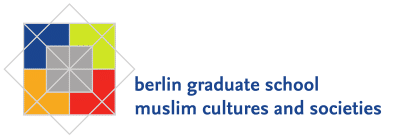Living in Refugee Camps in Berlin: Women's Perspectives and Experiences.
Reviews
(...) Living in Refugee Camps in Berlin is an engaging contribution to an emerging literature that focuses on people’s lived experiences. Written in a very accessible style, it does not only constitute a useful resource for students and researchers with an interest in border control and refugee matters but could also appeal to a general audience, practitioners and activists alike. One can hope that this book could be a commendable precursor of many more studies to come, as the European humanitarian crisis is a phenomenon that is far from being subdued, affecting the lives of men and women, whose survival fade in spaces of border control. · Andriani Fili, University of Oxford, Border Criminologies Blog
The amount and diversity of this data is impressive and, indeed, unprecedented. At a time when refugee issues are often discussed in general and abstract terms, the approach of this book is refreshing in providing insight into the factors shaping the everyday lives of recent refugees, their worries, concerns and hopes and how their daily experiences during the first weeks and months after their arrival could be improved. (...) [A] vast resource for students, researchers, journalists, social workers and politicians with an interest in refugee studies in general and emergency refugee accommodation as well as the experiences of newly arrived refugees in particular. · Jennifer Philippa Eggert, University of Warwick, LSE Review of Books
This project presents an excellent example of engaged Anthropology. The book addresses profound questions of social and political inequality, and of the local consequences of the global flows of war and violence. The researchers do this in a way that admirably demonstrates their awareness of social inequality and of the complex issues of field work. They reflect that as university students they are themselves a part of the intrinsic power structures in the context of Germany and Berlin, and that even those among them who hail from countries of the Global South are secure in their academic status and thus find themselves in an enormously privileged position compared to refugees in the city’s camps. In this sense the editors and authors of ‘Living in Refugee Camps in Berlin’ aim at speaking (truth) to and with the powers that be rather than write about or for the ‘subjects’ of their research. · Heike Becker, University of the Western Cape, Writer @ Ethnography
Die politisch motivierte Überzeugung der jungen Studierenden der Sozial- und Kulturanthropologie ist nachvollziehbar. Die Ergebnisse der Forschungsgruppen sowie die kritische Selbstreflexion ihrer Methoden und Positionierung lassen jedoch eine Kluft zwischen dem Anspruch einer engagierten Ethnologie und der Wirklichkeit des deutschen Asylverwaltungssystems entstehen. Diese Diskrepanz zwischen Anspruch und Realität, so zeigt diese Publikation, konnten die Studierenden jedoch fruchtbar machen, indem sie gelernt haben, zahlreiche Hürden zu umgehen und ihren Informantinnen Respekt und Würde zu geben, die ihnen mitunter sowohl von Landsleuten und anderen Asylsuchenden als auch vom deutschen Asylsystem geraubt wird. Nicht zuletzt macht die Reflexion über ihre Rolle und Wahrnehmung während des Forschungsprozesses den Studierenden klar, wie stark ihr eigener privilegierter Status in Deutschland von globalen Strukturen der Diskriminierung und Ungleichheit abhängt. (...) Die Lektüre [lohnt sich] vor allem für Studierende und all diejenigen, die an diesem aktuellen und brisanten Thema interessiert sind. · Delia Evelyne Nicoue, Sociologus
[Das Forschungsprojekt ist] wirkungsvoll und innovativ, da Lehre, Forschung und Engagement verbunden werden. Diese Vorgehensweise erscheint nicht nur zeitgemäß, sie ermöglicht auch dank ihres Reflexionsgrades und ihrer Sensibilität neue Perspektiven bei allen im Projekt Involvierten (...). Insofern ist dieser ethnologische Beitrag nicht nur hilfreich, um die Perspektiven und Erfahrungen geflüchteter Frauen nachzuvollziehen, sondern bietet auch Anknüpfungspunkte, wie eine engagierte Anthropologie von Nachwuchswissenschaftler*innen aussehen kann. · Sophie Reimers, Zeitschrift für Flüchtlingsforschung




